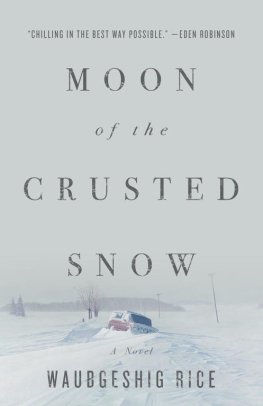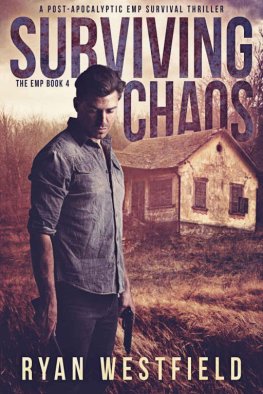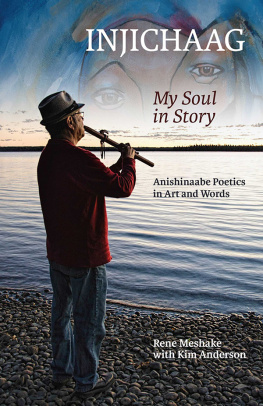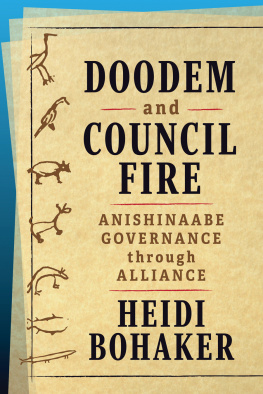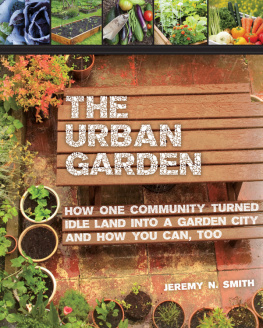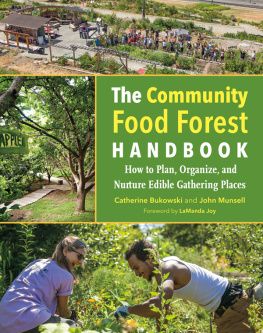Waubgeshig Rice
MOON OF THE CRUSTED SNOW
A NOVEL
To my son, Jiikwis,
who shines a bright and beautiful light on our future.
A crack echoed through the boreal landscape, a momentary chaos in the still afternoon air. In the near distance, a large bull moose fell to its side. Evan Whitesky stood and looped his rifle around his right shoulder, adjusted his neon orange hat, and began a slow walk over to his kill. The smell of gunpowder briefly dominated the crisp scent of impending winter.
His grey boots pushed through the yellowing grass of the glade. Evan was pleased. He had been out since early morning and had been tracking this particular bull since around noon. The fall hunt was drawing to a close, and he still wanted to put more food away. Food from the South was expensive and never as good, or as satisfying, as the meat he could bring in himself.
By the time Evan reached the moose moments later, it was dead. Massive antlers propped up its head. The eyes were open, vacant, and the bulls long tongue flopped out onto the grass. Evan reached into the right pocket of his cargo pants and pulled out a small leather pouch faded and smooth from years of wear. He brought it up to just below his chest and balanced it in the centre of his palm. He ran his thumb across the small beaded pattern in the middle, feeling where the beads were missing in the simple bear design. Ill ask Auntie to re-bead this later this fall, he thought.
Evan looked down at the beautiful design: a black bear in a red circle edged in white. At least half the outer white beads were gone and there was a bald patch near the bears head and hind legs. Most of the beaded bear itself remained, though. He untied the leather string and pinched some tobacco into his open palm. It came from a plastic pouch of rolling tobacco he bought at the trading post on the way out hed forgotten to get the dry, untreated tobacco, or semaa, from his medicine bundle before leaving the house. The shredded, manufactured leaves seemed to gum together. He bounced the tiny heap in his left hand before wrapping his fingers around it. He closed his eyes.
Gchi-manidoo, he said aloud. Great spirit, today I say miigwech for the life you have given us. He inhaled deeply and paused. This was still a little new to him. Miigwech for my family. And for my community. Miigwech for our health. Chi-miigwech for the life you have allowed me to take today, this moozoo, to feed my family. He still felt a little awkward, saying this prayer of thanks mostly in English, with only a few Ojibwe words peppered here and there. But it still made him feel good to believe that he was giving back in some way.
Evan expressed thanks for the good life he was trying to lead. He apologized for not being able to pray fluently in his native language and asked for a bountiful fall hunting season for everyone. He promised to keep trying to live in a good way, despite the pull of negative influences around him. He finished his prayer with a resounding, solitary miigwech before putting the tobacco on the ground in front of the moose. This was his offering of gratitude to the Creator and Mother Earth for allowing him to take this life. As he took from the earth, he gave back. It was the Anishinaabe way, as he understood it.
His head was clear. The adrenaline surge of the kill was brief, as was his remorse for taking a life. Evan had spent nearly his whole life hunting. His father had first taught him to identify and follow moose tracks in the deep bush around their reserve when he was five. Now, nearly twenty years later, he was on his own, tracking his own kill to support his young family. When he was new to the hunt, the sympathy and sadness he felt after pulling the trigger lasted days. Now he was a father himself and necessity overcame reluctance and regret.
This is a big fella, he thought. He looked over the bull once more before turning back to where hed parked his four-wheeler deeper in the bush that morning. He would have to butcher the animal here; it was too big for him to heft onto his ATVs trailer by himself. On some hunts, he would leave his kill on the land overnight and return the next day with help. But he didnt have any tarps or blankets with him to cover up the moose and mask its scent from other predators. And the chill in the air told him that he should move quickly.
A deep orange glow coated the northern landscape as the sun began to set, highlighting the deep evergreen of the pine and spruce trees that towered beyond the ridge. As he walked, the sky above became darker blue, and the air was markedly cooler. Overhead, a small formation of geese broke the silence, complaining about their migration south for the season. I thought they were all gone. Had he expected this delayed flock, he would have had his shotgun with him to add to the days bounty. But he already had a good stock of plucked and halved geese in a freezer at home; it didnt matter that much.
He stepped up to the four-wheeler and straddled it, then turned the key in the ignition. The harsh rumbling of the machine racketed across the field, chasing the soothing off-beat cries of the geese. He hadnt expected to find a moose this close to where hed first stopped just after dawn. Hed covered vast amounts of open terrain and thick bush throughout the day and he was about to pack it in. But he found a decent spot overlooking the small meadow on the walk back to his vehicle and decided to stop and wait. It had paid off.
The four-wheeler flattened the tall grass as Evan made his way back to the moose. He made a quick inventory of the meat theyd have for the winter: three moose, ten geese, more than thirty fish (trout, pickerel, pike), and four rabbits, for now more rabbits would be snared through the winter. It was more than enough for his own family of four, but he planned to give a lot of the meat away. It was the community way. He would share with his parents, his siblings and their families, and his in-laws, and would save some for others who might run out before winters end and not be able to afford the expensive ground beef and chicken thighs that were trucked or flown in from the South.
The thought of eating only packaged meat if all that game ran out made Evan shudder. Bad moose meat is always better than a good pork chop, his father always said. Evan ate southern meats when he had to, but he felt detached from that food. Hed learned to hunt when he was a boy out of tradition, but also necessity. It was harder than buying store-bought meat but it was more economical and rewarding. Most importantly, hunting, fishing, and living on the land was Anishinaabe custom, and Evan was trying to live in harmony with the traditional ways.
The four-wheeler rolled up to the dead moose. Evan turned it off and reached for the green canvas bag strapped to the rack on the back. He pulled out four large game bags for the smaller cuts of meat and the innards, then tossed the bags on the ground next to the animal and brought out his foldable razor knife. It would be dark soon so he had to cut quickly.
The bulls spoor was strong in his nose as he moved in to bring a hind leg to rest against his torso. He began to cut swiftly and methodically on the inside of the hip, and the skin opened easily, exposing the white tendons and purple muscle beneath. Cutting through further, he pressed against the leg with his opposite shoulder, dislocating the hip joint.
Once he had severed the hindquarter, Evan lugged it over to the trailer. He felt the burn in his arms and shoulders as he heaved the meat over the edge and onto the plywood base. He did this for each limb, arranging them neatly on the wide trailer bed, then he cut the meat from the back and neck, gutted what was left, and filled his game bags.

